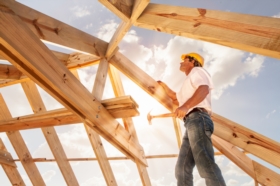




The landlord / tenant relationship is particularly well framed by the law, which makes it possible to know what are the responsibilities of each in ordinary situations or not. When renting an apartment or a house, there may be events that require work. Some maintenance work is legally the responsibility of the tenant, while others are legally the responsibility of the owner as those resulting from defects in construction. Knowing the distinction between these works is important to guard against possible abuse by an unscrupulous owner.
The underlying principle of the leases is to allocate the load of the maintenance work to the tenant while the work of greater size, and not directly related to the use of the housing by the tenant, will be the owner's charge. The tenant is therefore responsible for maintenance work whose cause lies in his occupation of the premises. For example, it is possible to mention a sink drain blocked by the presence of too much hair, too much dirt or negligence of cleaning on your part. In this case, the landlord will be entitled to ask you to repair or pay for the evacuation repairs that were blocked by your fault. This example also shows that in many situations, it is not always easy to distinguish the impact of your behavior on the condition of the apartment. To try to limit the sterile discussions and possible conflicts between you and your landlord, we advise you to be particularly vigilant about the notifications made during your inventory of places of entry into the housing. Indeed, it will be easier for you to justify the impact of your occupancy time by factually comparing the inventory of places of exit with the inventory of places of entry.
In the case of obsolescence and deterioration due to the age and logical wear of the equipment, an owner is not entitled to ask you to take charge of the work. For example, it is possible to cite the case of a hot water tank of more than twenty years that no longer works, which seems logical with respect to the life of this type of equipment. In the same vein, an owner will have to carry out work related to construction defects such as defects in the exterior joints of the building or shifts in linearity in a ceiling. In case of inconvenience caused by these defects of construction, your owner will have the obligation to assume himself the cost of the work of restoration in the state. Finally, in case of force majeure such as an earthquake or a violent storm, you can not be held responsible for any work, unless of course you have not respected the obligations of use as not to leave devices connected or do not leave windows open.
In order to maintain a cordial relation with your owner and also to avoid putting you at fault, we advise you to warn him very quickly so that he is not surprised and that he can organize himself. In addition, quickly prevent your owner will avoid further degradation. If the owner does not act, you will need to send him a registered letter with acknowledgment of receipt to be able to attest to the fact that you have warned him if necessary. Finally, it is imperative not to put yourself at fault for not giving reasons to the owner to turn against you. For example, it is strongly recommended that you do not stop paying your rent during the period when you ask your landlord to intervene. By respecting this method, you give all the necessary chances for the smooth running of your relationship with your lessor. If you wish to undertake housing improvement work, you can do so, but you will need to obtain the owner's agreement at the risk of having to pay a refurbishment fee at the time of your departure.
Listen to or listen to the program Wunnen dedicated to this article on Eldoradio HERE !